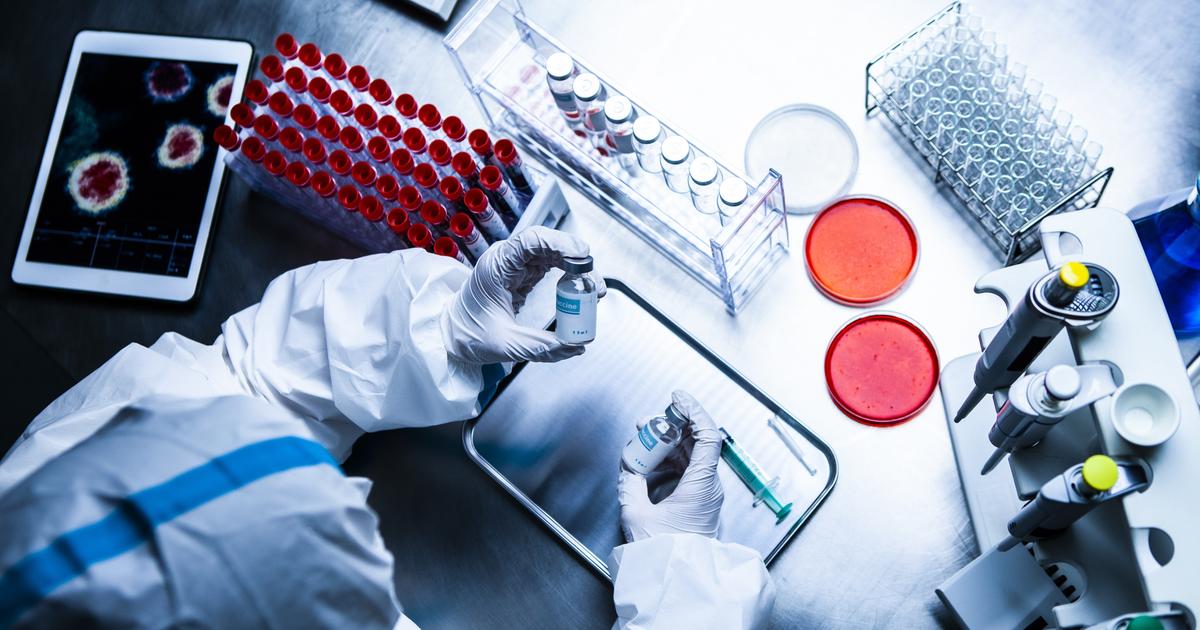“The amplitude of the current wave could prove to be greater than that of the previous wave”, alert Public Health France (SPF) in its latest report, published Thursday evening, about pediatric multi-system inflammatory syndromes.
These PIMS are one of the main serious forms of Covid in minors, with "a risk of cardiac decompensation in the acute phase", indicates the High Authority for Health (HAS).
A total of 849 cases linked to SARS-CoV-2 have been identified since the start of the pandemic.
SPF notes "a very clear increase" since the end of December, with around twenty cases identified each in the last few weeks.
These 849 children or adolescents, most often under the age of 11, all had to be hospitalized.
353 of them went to intensive care, 250 to a continuous care unit, and the others to a “classic” pediatric service.
In two-thirds of cases, PIMS was associated with myocarditis.
Several suggestive signs
These inflammatory syndromes have the particularity of occurring long after the infection, namely four to five weeks later on average.
However, the number of infected children has increased sharply among minors since December (5,000 positive cases per 100,000 children under 10 and 7,000 cases per 10,000 young people aged 10 to 19 over the last week).
We therefore expect to have more and more PIMS.
“It is a real subject of vigilance and a source of concern”, recently told us Professor Christèle Gras-Le-Guen, president of the French Society of Pediatrics.
Hence the importance of being able to detect them.
On January 18, the HAS had also insisted on the “vigilance” to be had.
The main clinical signs suggestive of PIMS are as follows:
a high fever (often above 39°C).
A marked deterioration in general condition, which can take the form of very intense fatigue, loss of appetite, chills, diffuse pain in the body, etc.
very common digestive disorders: abdominal pain, diarrhoea, nausea, vomiting, etc.
"Fairly simple" biological tests can confirm - or not - a diagnosis of PIMS.
But "any suspicion implies hospital care without waiting for the results", insists the HAS.
Read alsoCovid-19 in children: should we be worried about the record number of hospitalizations?
Moreover, it is not because the child has not been infected recently that this should rule out the possibility of such a pediatric multi-systemic inflammatory syndrome.
And children who do not suffer from comorbidities can also be affected.
“It is even the most frequent case”, specifies Pr Emmanuel Grimprel, head of the general pediatrics department at the Armand-Trousseau hospital (Paris XII).
Less severe forms with Omicron?
If the child with a PIMS can suffer from very serious disorders and must therefore be hospitalized, "very few sequelae are observed" during the months that follow, reassures Public Health France.
And it is "not excluded" that the Omicron variant leads to less severe forms than Delta, but the current data are still insufficient to answer this.
Finally, it should be noted that vaccination protects against the risk of PIMS.
According to a study by the American health agency published in early January, two doses of the Pfizer vaccine are 91% effective in hospitalized adolescents aged 12 to 18 years.
These data encourage the vaccination of teenagers but also children, who are "most at risk of PIMS", write the authors.
In France, 80% of 12-17 year olds but only 5% of 5-11 year olds have received a first dose of vaccine.









